Questões de Língua Inglesa da Fundação CESGRANRIO (CESGRANRIO)
Lista completa de Questões de Língua Inglesa da Fundação CESGRANRIO (CESGRANRIO) para resolução totalmente grátis. Selecione os assuntos no filtro de questões e comece a resolver exercícios.
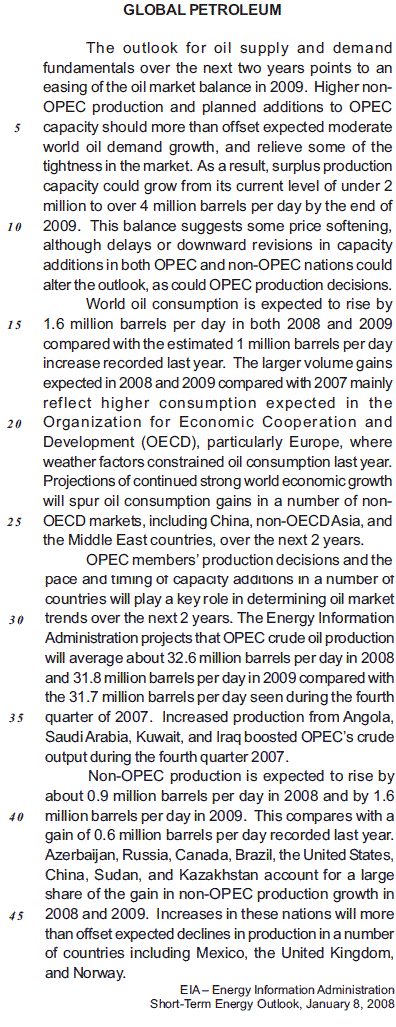
The sentence in which should is used in the same sense as in planned additions to OPEC capacity should more than offset... (lines 4-5) is:
- A.
I should say that the salaries make up very nearly two thirds of the budget
- B.
If you should be fired, your health benefits will not be automatically cut off.
- C.
In such cases the officer should first give notice to those in the house.
- D.
Should he go back to the office and wait for you to telephone?
- E.
This years treasury deficit should be six billion dollars or more.
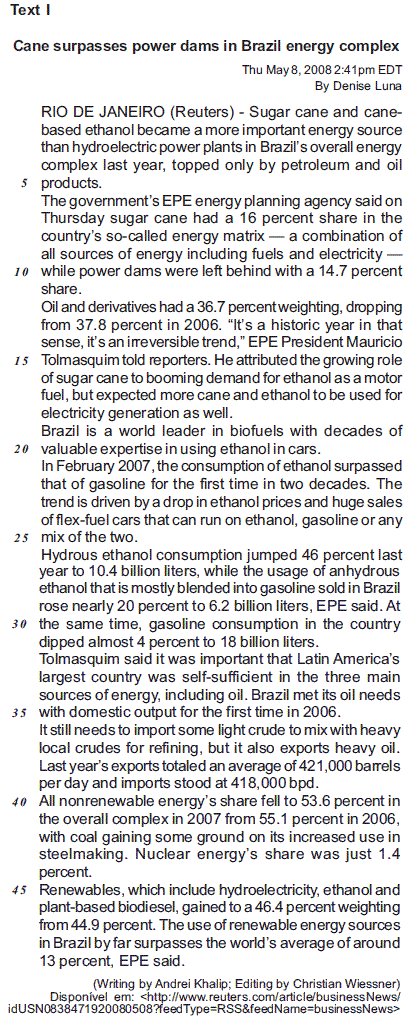
The main purpose of Text I is to
- A.
criticize the increasing price of ethanol and flex fuel cars.
- B.
condemn the excessive use of renewable energy sources in Brazil.
- C.
announce a recent and relevant change in Brazils energy complex.
- D.
report on the excessive use of cane and ethanol for electricity generation in Brazil.
- E.
explain why gasoline consumption has suddenly dropped in Latin American countries.
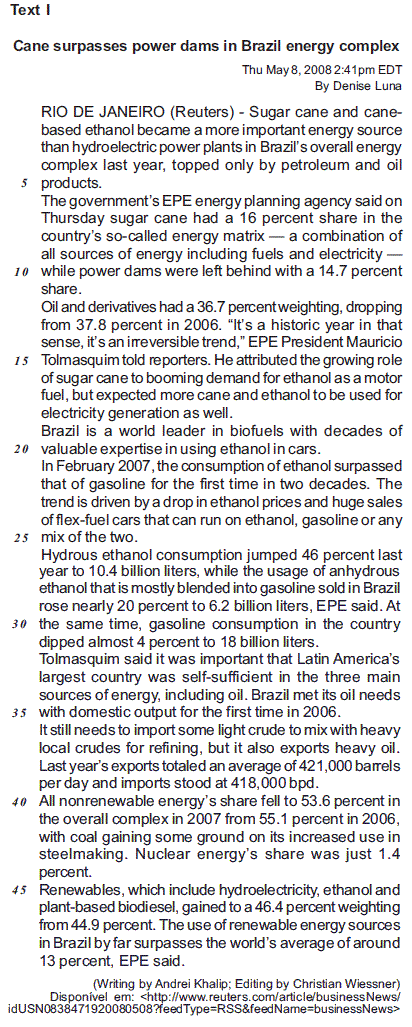
Based on Paragraph 1, it is correct to say that
- A.
petroleum and oil products are the most significant energy sources in Brazil, followed by sugar-cane ethanol and hydroelectric power.
- B.
petroleum and oil products must be the top priority of the Brazilian government.
- C.
ethanol derived from sugar-cane has surpassed all other forms of power generation in Brazil.
- D.
hydroelectric plants have always been the most efficient source of energy in Brazil.
- E.
hydroelectric plants and cane-based ethanol are, nowadays, the most productive sources of energy in Brazil.
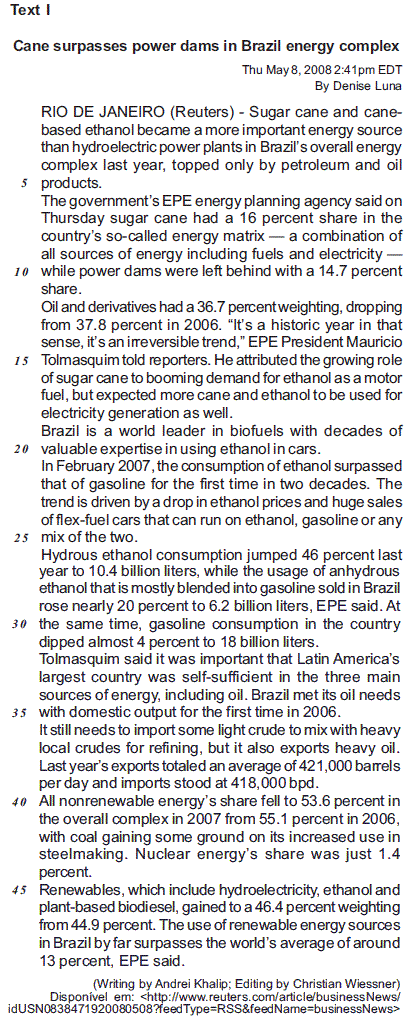
According to EPE President, Mauricio Tomalsquim,
- A.
oil and derivatives will always remain the only energy source to be used in motors.
- B.
sugar-cane based ethanol is efficient as fuel for cars, but cannot be used to generate electricity.
- C.
the consumption of ethanol is expected to drop in the future 2006 was a historical exception in energy demands.
- D.
the production of oil has boomed after 2006, as a result of the historical tendency for the manufacture of exclusive petroleum-driven motors.
- E.
it was important that Brazil be able to supply all its needs in generating energy, with renewable fuels like ethanol, hydroelectric power and petroleum.
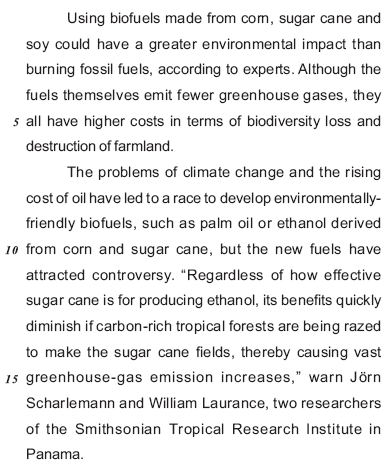
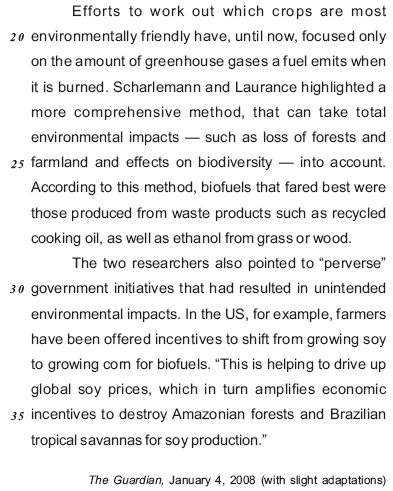
The main purpose of the article is to
- A.
alert to the negative implications associated with the use of biofuels.
- B.
criticize the environmental impact derived from corn production.
- C.
explain why fossil fuels emit far more greenhouse gases than biofuels.
- D.
justify why governments should not encourage the use of biofuels from waste products.
- E.
list all kinds of biofuels that have been used to substitute fossil fuels.
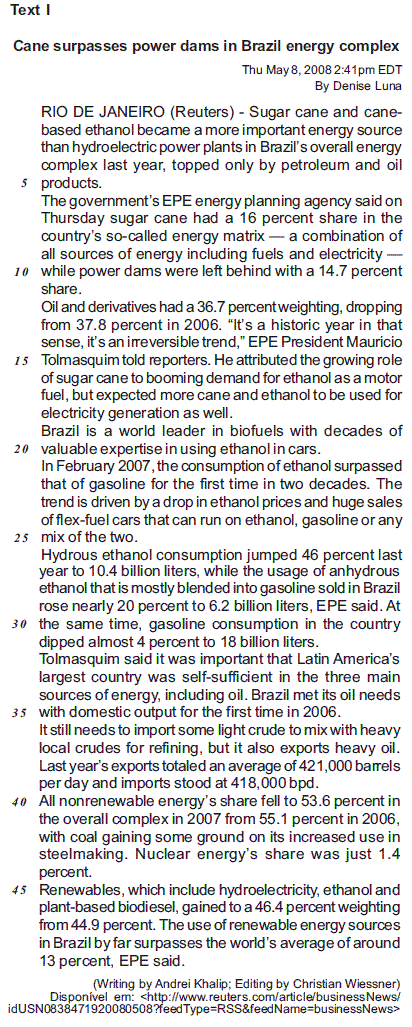
All the boldfaced items refer to Brazil, EXCEPT
- A.
gasoline consumption in the country dipped almost 4 percent to 18 billion liters. (lines 30-31)
- B.
Tolmasquim said it was important that Latin Americas largest country was self-sufficient in the three main sources of energy, (lines 32-34)
- C.
Brazil met its oil needs with domestic output for the first time in 2006. (lines 34-35)
- D.
It still needs to import some light crude to mix with heavy local crudes (lines 36-37)
- E.
but it also exports heavy oil. (line 37)
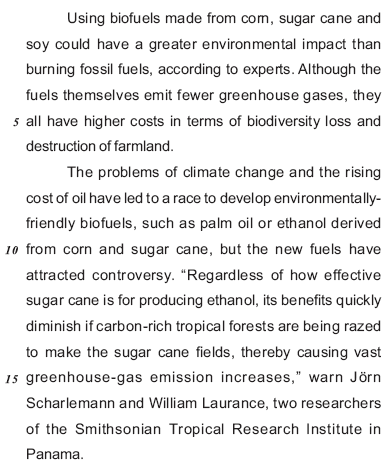
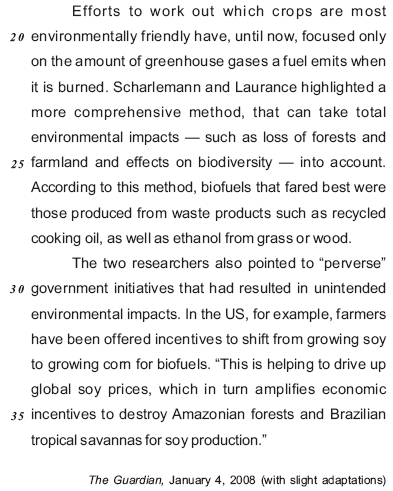
What makes Scharlemann and Laurance's method innovative (Paragraph 3) is that it
- A.
suggests the use of recycled cooking oil as an alternative to ethanol from grass or wood.
- B.
measures the amount of greenhouse gases produced by the burning of a fuel.
- C.
represents an effort to define the crops that are less damaging to the environment.
- D.
assumes that waste products are the best source of biofuels.
- E.
considers the overall impact of fuels, examining, for example, how it affects farmlands and biodiversity.
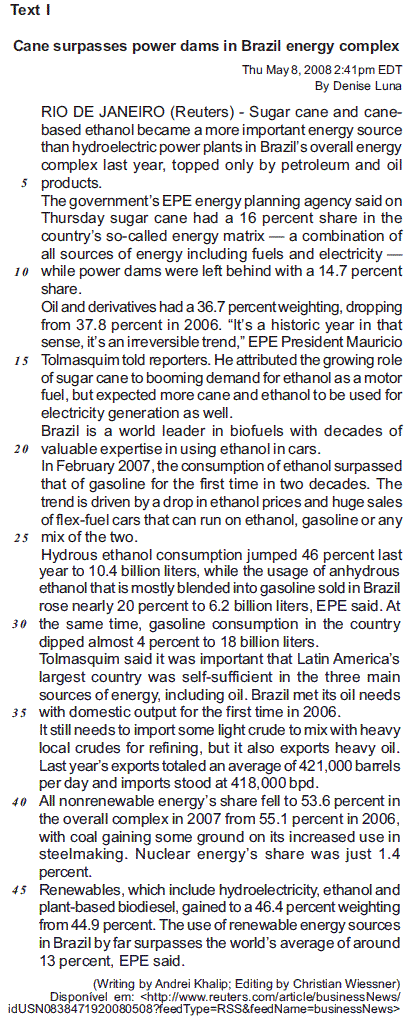
In terms of reference, it is correct to affirm that
- A.
14.7 percent share (lines 10-11) refers to the energy generated by biofuels and hydro-energy.
- B.
10.4 billion liters (line 27) - refers to the consumption of hydrous ethanol in 2006.
- C.
4 percent (line 31) refers to the increase in gasoline consumption in 2007.
- D.
418,000 bpd (line 39) refers to amount of barrels of gasoline produced per day in Brazil.
- E.
44.9 percent (line 47) refers to the percentage that renewable energy sources represented in 2006.
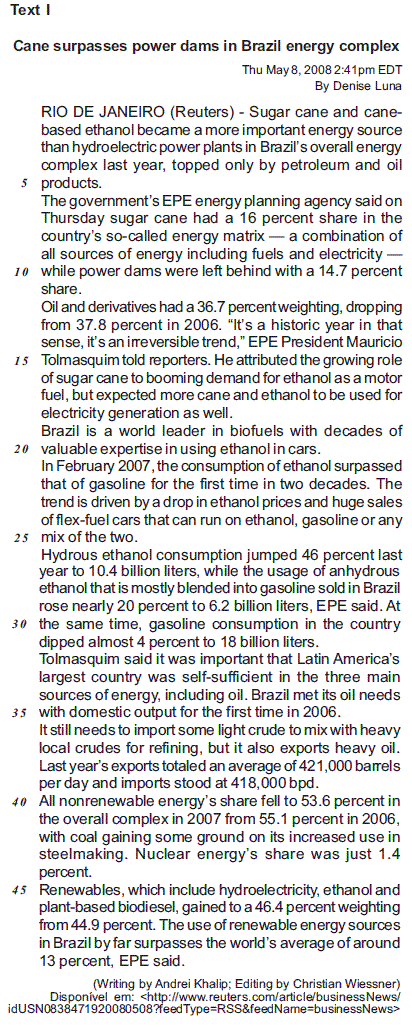
The fragment The use of renewable energy sources in Brazil by far surpasses the worlds average of around 13 percent, (lines 47-49) means that Brazil
- A.
uses much more renewable energy than other countries in the world.
- B.
uses just 13 percent of the renewable energy sources produced around the world.
- C.
still has to go a long way to reach the global levels of renewable energy use.
- D.
does not consume as much ethanol and plant-based biodiesel as other nations.
- E.
cannot compete with the international production of ecofriendly fuels.
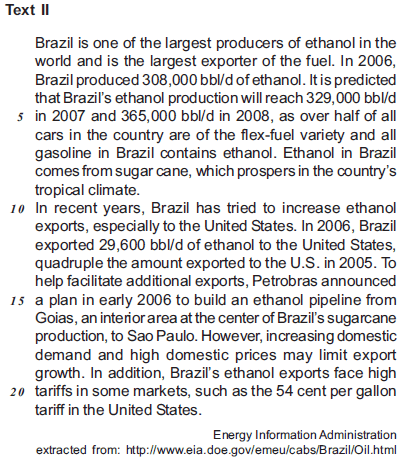
According to Paragraph 2 in Text II, Brazilian exports of canebased ethanol
- A.
was four times greater in 2005, considering only the US market.
- B.
might be positively affected by the increase in domestic demand.
- C.
can be influenced by the heavy taxation imposed by foreign countries.
- D.
will be extended to other markets that will cover the price of 54 cents per gallon.
- E.
will stimulate Petrobras to plan more oil production in Goias as well as in Sao Paulo.


